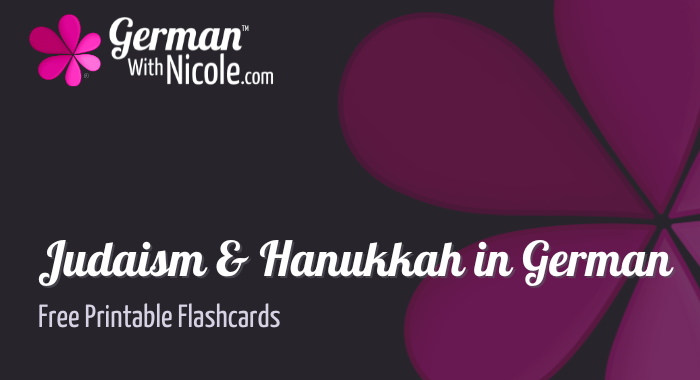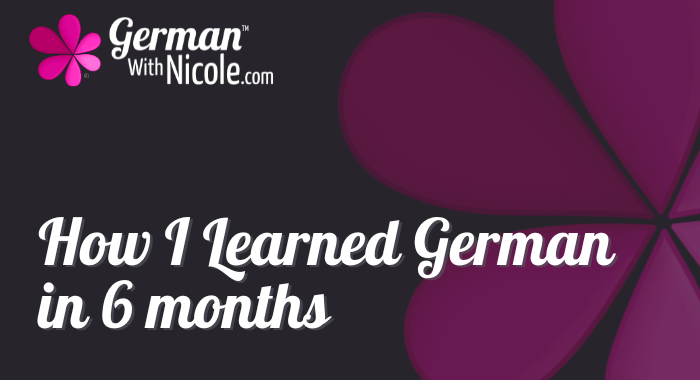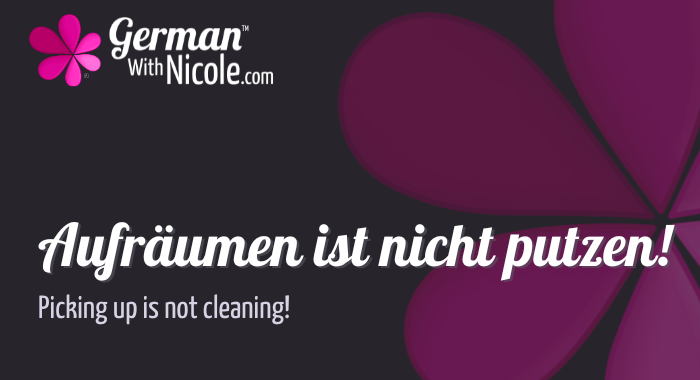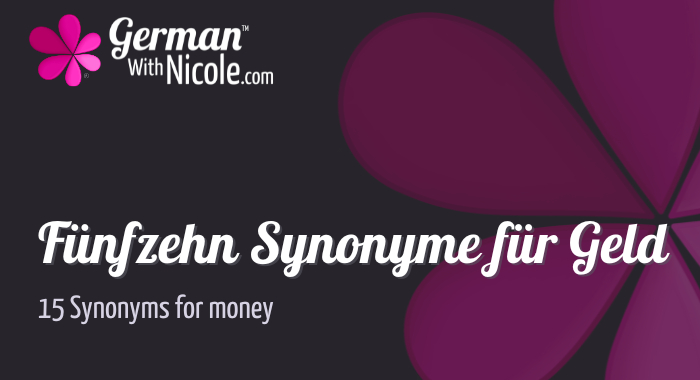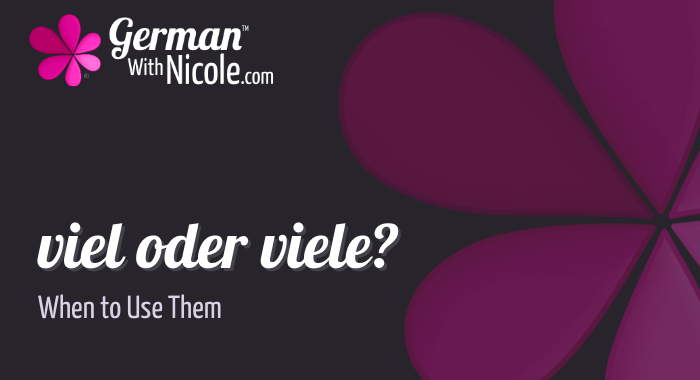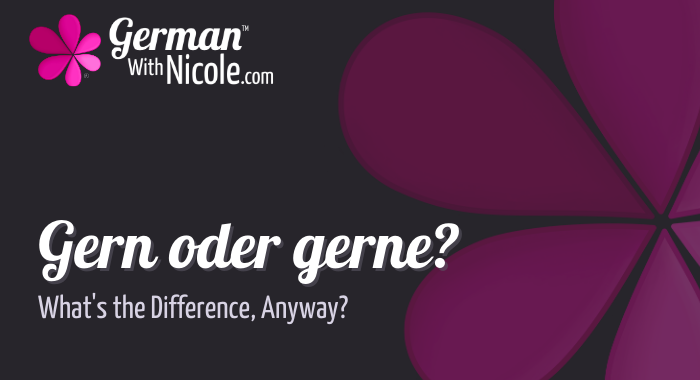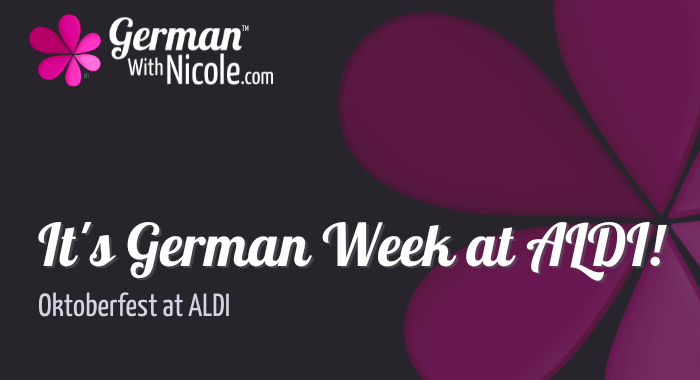das Blog
Judaism & Hanukkah in German - Free Printable Flashcards!
As a little gift to you for Hanukkah this year, here are some printable flashcards on Judaism and Hannukah auf Deutsch!
What's fascinating about many vocabulary words for Judaism and Hanukkah in German is how strikingly similar they are to the English words. "Kosher" is simply spelled "Koscher," for example, and simply reflects the German spelling ("sch") as opposed to the English ("sh").
Here are the flashcards for general terms on "Das Judentum in Deutschland." (Judaism in Germany) This PDF …
12 Reasons to Visit Germany--Whether You Speak German or Not!
1. Experience the opposite of urban sprawl:
Germany is about the size of the states of Minnesota and Wisconsin together and they have a population of around 82 million people. To contrast, in the US we have about 300 million on a huuuge plot of land, so it’s much more densely populated. Germany is growing in diversity, so you will likely run into folks of many different backgrounds.
2. Speak with your hands and feet.
Most Germans, in particular in big cities like Hamburg, Bremen, Stuttgart, M…
How I Learned German in 6 Months
There isn't much of a secret to language learning because it's all about working with the language as much as possible over a length of time. However I can give you tips on how I learned to speak German fluently (and I mean--I could say anything I wanted or needed to say) within about 6 months. Konjunktiv II? Kein Thema. Polite discourse? Absolut! Telling someone off? That, too.
Don't get me wrong--learning German in 6 months was really tough. I started at an A2 level (the second-lowest level) …
Quick Guide to the «W-Fragen» in German and English
The W-Fragen in German are question words.
They are also known as 'open-ended questions. In English the W-Fragen also begin 'w': who, what, when, where, why, and how.
You begin learning the W-Fragen at the A1 level in German.
(These questions are different from the ja/nein Fragen or yes/no questions in German begin with the verb ("Arbeiten Sie heute?" "Kommen Sie aus Bayern?").)
In most books you usually see a list like this, it's just the German and English translations. But is that really…
Aufräumen ist nicht putzen!
Picking up is not cleaning!
So what's the difference between aufräumen and putzen?
Many German learners want to know what "to clean" is. The verb "to clean" in German is putzen. However putzen is something very specific in German--it may not be what you think!
For Germans, putzen is the actual process of cleaning, and nothing else. Americans think of cleaning as vacuuming, putting away books that might be laying about, doing the laundry, and any other amount of things. However putzen does not…
Fünfzehn Synonyme für Geld
Für Geld gibt es im Deutschen gaaanz viele Wörter. Wie viele kennen Sie schon?
There are sooo many words for "Geld" (Money) in German. How many do you know already?
Nehmen Sie sich eine Minute und schreiben Sie so viele Wörter für Geld, die Sie kennen. Mit diesen drei können Sie anfangen:
Geld, Cash, Kohle ...
Also, hier gibt's einige, sowie eine kurze Erklärung zu den jeweiligen Vokabeln.
Here are a few synonyms, as well as a short explanation to each of these vocabulary words.
Viel oder viele?
"Viel" oder "Viele"? Gute Frage!
It depends on whether or not you're speaking about something that can be counted. For example:
viel Zeit - lots of time. Time in general cannot be counted. (You can count hours, but not time itself.)
viele Menschen - many people. People can be counted.
Erfolg (success) is another example of something that cannot be counted. Certain things, yes, like finishing a degree or obtaining your driver's license, can be counted, sure, however they are very specific eve…
"Gern" oder "gerne"?
"Das mache ich gern."
"Ich gehe gern schwimmen."
oder
"Das mache ich gerne."
"Ich gehe gerne schwimmen."
Was ist eigentlich der Unterschied?! Sagt man eigentlich "gern" oder "gerne"? Gute Frage!
Man kann entweder "gern" oder "gerne" sagen--es macht praktisch keinen Unterschied. Je nach dem, was Sie sagen wollen, können Sie frei wählen, ob Sie "gern" oder "gerne" sagen möchten.
![]()
You can use either "gern" or "gerne" in German, it doesn't really make a difference. Depending on the sente…
It's German Week at ALDI! - Oktoberfest
ALDI is a world-wide discount supermarket store from Germany and they offer a limited amount of offerings for very low prices. Every week they have a different special on special purchase items, so check their weekly ad to find out what the specials are.
From what I've been able to discover, ALDI has German Week four times a year, so once a quarter. One of these times it's Oktoberfest - products imported from Germany to help you celebrate on this side of the big pond.
ALDI has their own brands…
Wiederholen Sie, bitte!
5 Ways to Re-Use Your German & Learn More in the Process
There is one key ingredient to students who learn the most in their German lessons: they repeat, repeat, repeat, repeat, repeat.
My first German teacher was (and surely still is) an excellent instructor. She told me if I wanted to learn a new word in German, I'd have to use it 28 times.
28 times!! That's a lot of repetition. (If that's an average, sometimes it goes faster--say 20 repetitions, and sometimes it takes longer, say 40 repet…
Categories
- A1 (69)
- A2 (54)
- B1 (46)
- B2 (23)
- C1 (22)
- Deutsch lernen (78)
- Einkaufen (15)
- Essen (12)
- Grammatik (23)
- Hören (14)
- Landeskunde und Kultur (49)
- Lesen (11)
- Musik (5)
- Nachrichten (4)
- Podcast (61)
- Pronunciation (3)
- Schreiben (3)
- Schwäbisch (4)
- Spiele und Spaß (Games and Fun) (12)
- Sprechen (13)
- Vokabeln (39)
- Video (11)
